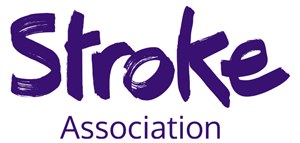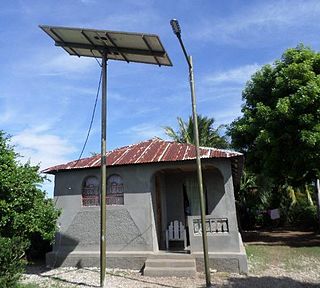Related Research Articles

Cerebrovascular disease includes a variety of medical conditions that affect the blood vessels of the brain and the cerebral circulation. Arteries supplying oxygen and nutrients to the brain are often damaged or deformed in these disorders. The most common presentation of cerebrovascular disease is an ischemic stroke or mini-stroke and sometimes a hemorrhagic stroke. Hypertension is the most important contributing risk factor for stroke and cerebrovascular diseases as it can change the structure of blood vessels and result in atherosclerosis. Atherosclerosis narrows blood vessels in the brain, resulting in decreased cerebral perfusion. Other risk factors that contribute to stroke include smoking and diabetes. Narrowed cerebral arteries can lead to ischemic stroke, but continually elevated blood pressure can also cause tearing of vessels, leading to a hemorrhagic stroke.
The National Heart, Lung, and Blood Institute (NHLBI) is the third largest Institute of the National Institutes of Health, located in Bethesda, Maryland, United States. It is tasked with allocating about $3.6 billion in FY 2020 in tax revenue to advancing the understanding of the following issues: development and progression of disease, diagnosis of disease, treatment of disease, disease prevention, reduction of health care disparities within the American population, and advancing the effectiveness of the US medical system. NHLBI's Director is Gary H. Gibbons (2012–present).

The American Heart Association (AHA) is a nonprofit organization in the United States that funds cardiovascular medical research, educates consumers on healthy living and fosters appropriate cardiac care in an effort to reduce disability and deaths caused by cardiovascular disease and stroke. They are known for publishing guidelines on cardiovascular disease and prevention, standards on basic life support, advanced cardiac life support (ACLS), pediatric advanced life support (PALS), and in 2014 issued the first guidelines for preventing strokes in women. The American Heart Association is also known for operating a number of highly visible public service campaigns starting in the 1970s, and also operates several fundraising events.

The Advertising Council, commonly known as the Ad Council, is an American nonprofit organization that produces, distributes, and promotes public service announcements on behalf of various sponsors, including nonprofit organizations, non-governmental organizations and agencies of the United States government.

The Massachusetts Department of Public Health is a governmental agency of the Commonwealth of Massachusetts with various responsibilities related to public health within that state. It is headquartered in Boston and headed by Commissioner Monica Bharel.

The Stroke Association is a charity in the United Kingdom. It works to prevent stroke, and to support everyone touched by stroke, fund research, and campaign for the rights of stroke survivors of all ages.
The Heart Rhythm Society is an international non-profit organization that promotes education and advocacy for cardiac arrhythmia professionals and patients. The society was founded in 1979 and counted over 7,500 members from over 90 countries as of January 2023. The official journal of the Heart Rhythm Society is HeartRhythm, which provides readers scientific developments devoted to arrhythmias, devices, and cardiovascular electrophysiology. The Heart Rhythm Society is headquartered in Washington, DC, US.
Futures Without Violence is a non-profit organization with offices in San Francisco, Washington, D.C., and Boston, United States, with the goal of ending domestic and sexual violence. Futures Without Violence is involved in community-based programs, developing educational materials, and in public policy work.
World Stroke Day is observed on October 29 to underscore the serious nature and high rates of stroke, raise awareness of the prevention and treatment of the condition, and ensure better care and support for survivors. On this day, organizations around the world have facilitated events emphasizing education, testing, and initiatives to improve the damaging effects of stroke worldwide. The annual event was started in 2006 by the World Stroke Organization (WSO) and the WSO declared stroke a public health emergency in 2010. The WSO now has an ongoing campaign that serves as a year-round interface for advocacy, policy, and outreach to support strides and continue progress made on World Stroke Day.
The International Society of Pediatric Oncology (SIOP) is a medical association for pediatric oncologists that is dedicated to increasing knowledge about childhood cancer. Its first president was Odile Schweisguth of France.

The Ministry of Health, commonly abbreviated to MoH, is the ministry overseeing the health care and health policy of Saudi Arabia. The ministry is tasked with formulating strategies to ensure public health in the country, while also managing crucial health infrastructure.

The National Stroke Association was a U.S.-based nonprofit organization working between the years 1984–2019 to reduce the incidence and impact of stroke, the fourth leading cause of death in the United States. The association delivered education and programs focused on prevention, treatment, rehabilitation, and support for all impacted by stroke.
Sepsis Alliance is a non-profit organization dedicated to raising awareness of sepsis. This awareness is accomplished through a variety of methods, including healthcare professional education programs, outreach to the general population, and lobbying for regulatory measures which improve outcomes for individuals with sepsis. The organization is recognized as a 501(c)(3) charity by the Internal Revenue Service.

The White House Initiative on Asian Americans, Native Hawaiians, and Pacific Islanders (WHIAANHPI) is a United States governmental office that coordinates an ambitious whole-of-government approach to advance equity, justice, and opportunity for Asian Americans, Native Hawaiians, and Pacific Islanders. The Initiative collaborates with the Deputy Assistant to the President and AA and NHPI Senior Liaison, White House Office of Public Engagement and designated federal departments and agencies to advance equity, justice, and opportunity for AA and NHPIs in the areas of economic development, education, health and human services, housing, environment, arts, agriculture, labor and employment, transportation, justice, veterans affairs, and community development.
National Stroke Awareness Month is observed in the United States annually during the month of May. National Stroke Awareness Month was created to promote public awareness and reduce the incidence of stroke in the United States.
Occupational heat stress is the net load to which a worker is exposed from the combined contributions of metabolic heat, environmental factors, and clothing worn which results in an increase in heat storage in the body. Heat stress can result in heat-related illnesses, such as heat stroke, hyperthermia, heat exhaustion, heat cramps, heat rashes and chronic kidney disease. Although heat exhaustion is less severe, heat stroke is a medical emergency and requires emergency treatment, which if not provided can even lead to death.

Rabies is a viral disease that exists in Haiti and throughout the world. It often causes fatal inflammation of the brain in humans and other mammals, such as dogs and mongooses in Haiti. The term "rabies" is derived from a Latin word that means "to rage"; rabid animals sometimes appear to be angry. Early symptoms can include fever and tingling at the site of exposure, followed by one or more of the following symptoms: violent movements, uncontrolled excitement, fear of water, an inability to move parts of the body, confusion, and loss of consciousness. Once symptoms appear, death is nearly always the outcome. The time period between contracting the disease and showing symptoms is usually one to three months; however, this time period can vary from less than a week to more than a year. The time between contraction and the onset of symptoms is dependent on the distance the virus must travel to reach the central nervous system.

Olajide Williams is an American neurologist and the founder of Hip-Hop Public Health. He is Chief of Staff and Professor of Neurology at Columbia University.
Cardiovascular disease in women is an integral area of research in the ongoing studies of women's health. Cardiovascular disease (CVD) is an umbrella term for a wide range of diseases affecting the heart and blood vessels, including but not limited to, coronary artery disease, stroke, cardiomyopathy, myocardial infarctions, and aortic aneurysms.
Native Americans are affected by noncommunicable illnesses related to social changes and contemporary eating habits. Increasing rates of obesity, poor nutrition, sedentary lifestyle, and social isolation affect many Americans. While subject to the same illnesses, Native Americans have higher morbidity and mortality to diabetes and cardiovascular disease as well as certain forms of cancer. Social and historical factors tend to promote unhealthy behaviors including suicide and alcohol dependence. Reduced access to health care in Native American communities means that these diseases as well as infections affect more people for longer periods of time.
References
- ↑ "Massachusetts Health Promotion Clearinghouse Catalog". www.maclearinghouse.com. Archived from the original on 1 May 2008. Retrieved 14 January 2022.
- ↑ Wall, H. K.; Beagan, B. M.; O'Neill, J.; Foell, K. M.; Boddie-Willis, C. L. (April 2008). "Addressing Stroke Signs and Symptoms Through Public Education: The Stroke Heroes Act FAST Campaign". Prev Chronic Dis. 5 (2): A49. PMC 2396980 . PMID 18341784.
- ↑ "Stroke Signs and Symptoms/Stroke Heroes Act FAST". Mass.gov. Retrieved 2011-03-16.
- ↑ "News | Geovision". Geovisiononline.com. 2009-09-21. Retrieved 2011-03-16.
- ↑ "Gabriel Awards at 1645 Brook Lynn Dr., Suite 2, Dayton, OH 45432-1944 US - And the winners are". Home.catholicweb.com. Retrieved 2011-03-16.